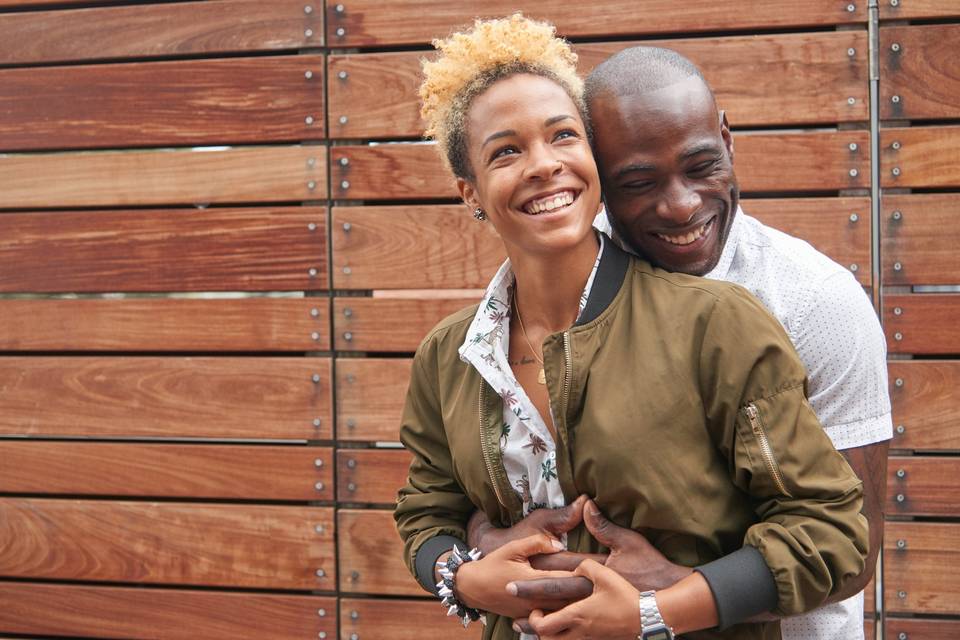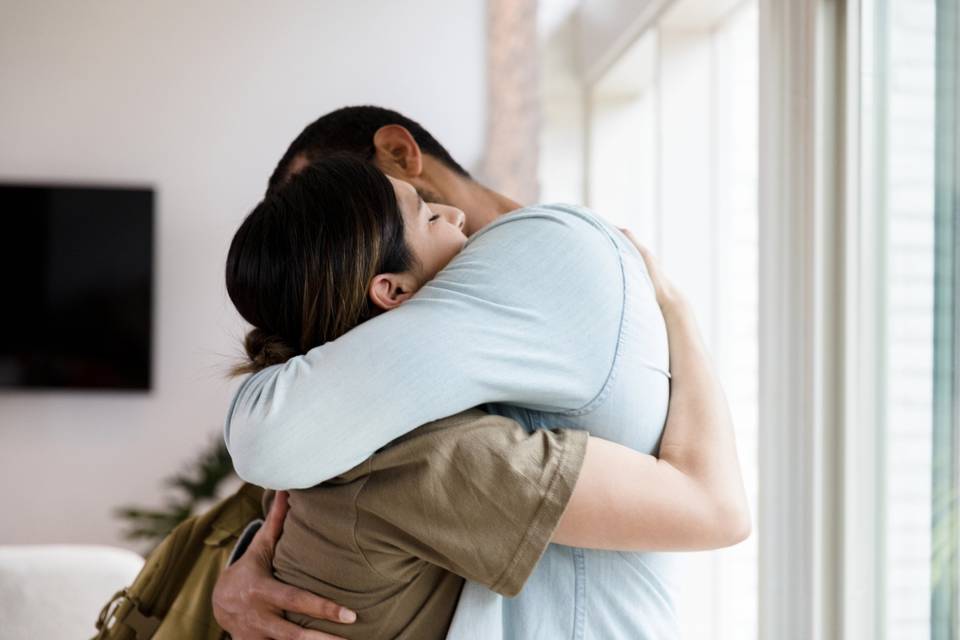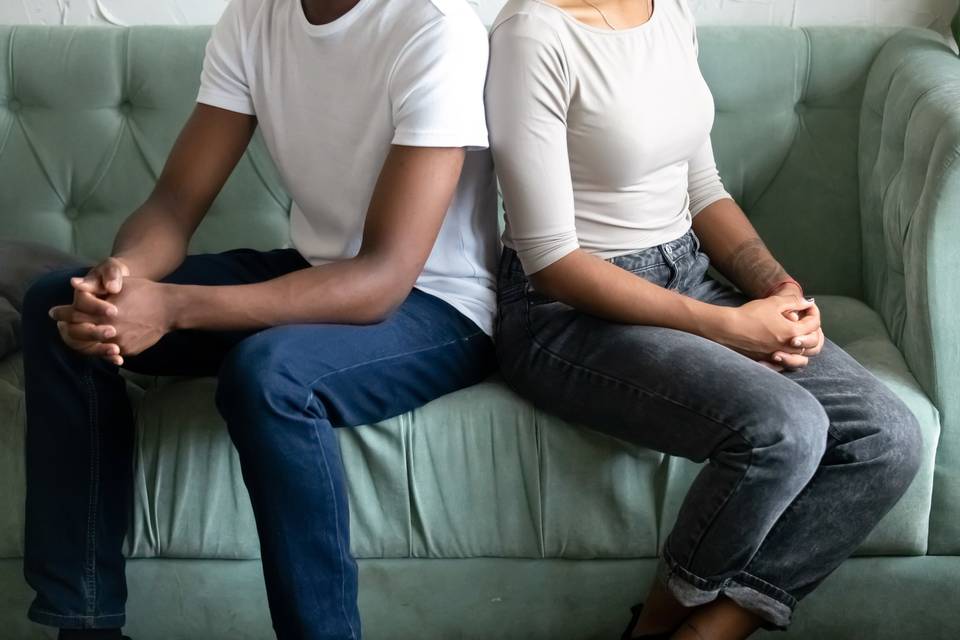8 Ways to Know You're in a Good Relationship
Some of the signs of a good relationship are obvious, while others require a bit more thought. Here, experts share how to tell if your relationship is solid.


We all strive to find ourselves in a “good” relationship, but many of us struggle to come to terms with what this really means. After all, who decides what relationship qualifies as “good” versus “bad”—and aren’t there a lot of relationships that fall in between?
According to Shemiah Derrick, L.P.C., relationship therapist and author of The Words Between Us Couples Journals, the terms “good” and “bad” when pertaining to relationships really mean “healthy” versus “unhealthy” or “balanced versus “imbalanced.” “A good, or healthy, relationship is ideally one where there’s an understanding of partnership, shared values as well as positive experiences such as joy, humor, contentment, excitement and even safety,” she says. “‘Bad' or unhealthy relationships lack a sense of positive sentiment, come with a lot of stress, require more than what is being received and may actually be detracting from the positivity an individual achieves on their own.”
When you’re in a good romantic relationship, you usually know. You’re happy, feel secure and stable, feel supported and are optimistic for the future—most of the time. Of course, no relationship is perfect, so it’s important to acknowledge that there will be bumps in the road. Even the happiest of good relationships have their moments. But when home base is difficult or toxic, it has far reaching effects you might not even realize, warns Los Angeles-based Licensed Marriage Family Therapist, Evie Shafner. “The anxiety of living in a broken or bad relationship takes so much energy that all our focus can go there, making it difficult to concentrate and do the things we need to do,” she says. “We might not be sleeping well or making good decisions, our work can suffer because we don’t have the energy to focus, we might feel short-tempered and unable to manage well and it can affect how we are in the rest of our relationships, or even feel like we don’t have the time to attend to them.”
If you’re wondering whether or not your relationship qualifies as a “good” relationship, here are some of the key qualities experts like to see in happy, successful couples.
You’re both committed to building trust.
Trust is a non-negotiable characteristic of a healthy and positive relationship, according to Darcy Sterling, Ph.D., L.C.S.W., relationship therapist and the host of E! Network’s Famously Single. “Trust between partners offers freedom and security in your relationship no matter where your partner is or what they are doing and takes away the obsessive and intrusive thoughts that you may have in a relationship that lacks trust and encourages a peaceful union,” she says. “When you trust that your partner has your best interests at heart, you can resolve conflict more maturely.”
You have empathy for each other.
If you care for each other’s feelings as much, if not more than, you care for your own, this is called empathy and it’s incredibly important when it comes to a happy relationship. “Empathy is what creates the sense of belonging and allows intimacy to flourish,” says Shafner. “When you know there is an empathic essence that lives in your partner, even if there are difficult moments, you feel safe.” The best way to cultivate empathy in your relationship is to have the empathy for your partner that you would like them to have for you. Truly think about what it is like to walk in their shoes.
You both feel secure.
Feeling secure—emotionally, mentally and physically—is important for any time of relationship, but especially a romantic one. “This means that you feel secure in your ability to express your own personal needs and feel supported in your relationship without questioning your well-being,” says Elizabeth Marks, L.M.S.W. with Manhattan Wellness. “Security within a relationship allows for consistency and stability and is the foundation that enables vulnerability and trust.”
You are self aware of your own issues.
In order to have a healthy relationship, it’s vital that both partners are willing to take ownership of their issues, work on becoming non-reactive and can apologize, according to Shafner. “If one partner feels like they are unable to take ownership of their part, we stop wanting to connect with them and stop trusting them to be our friend,” she says.
You give each other the benefit of the doubt.
It’s only natural that you and your partner will disagree and even argue, but it’s how you handle that conflict that dictates the health of your relationship. “Great relationships allow room for one to give the other the benefit of the doubt when things don't go as planned,” says Derrick. “You will feel offended at some point, your feelings will be hurt and your partner will miss the mark, but what keeps you in a healthy relationship is giving the benefit of the doubt that they aren't intentionally trying to be hurtful.” To improve this in your relationship, she warns against jumping to conclusions. “Instead, consider the reason why something happened or didn't happen from a reasonable perspective before jumping to conclusions,” she adds.
You communicate effectively.
In order to navigate our different points of view, we have to have good communication skills. Not only does open communication help relationship problems, but it also helps restore the intimacy between the couple. “We need to know how to express ourselves to our partners in a calm, respectful and productive way, which in turn will maximize the likelihood that our partners hear our needs clearly and feel motivated to meet them,” says Dr. Sterling. “We also need to know how to listen appropriately to our partners when they express their relationship needs to us.” Remember: Mutual respect is key!
You're open to feeling vulnerable.
While it may feel scary and intimidating, being vulnerable and open with your partner allows them to truly get to know the real you and also enhances the connection between you, notes Gabrielle Morse, L.M.H.W, with Manhattan Wellness. “Without vulnerability, a relationship may plateau and feel stagnant,” she says. “You can practice vulnerability in your relationship by challenging yourself to be honest about how you are feeling towards your significant other, by sharing a personal story that shows your partner who you are, and by integrating your partner into your personal life rather than keeping them separate.”
You relieve each other's distress.
In a healthy intimate relationship, your partner eases your stress more than they cause it; they make you feel relieved at the end of the day. “Knowing exactly what to do or say to lift your partner's spirits, put their mind at ease and remove actual obstacles to their well-being is critical to a strong relationship,” says Gabrielle Usatynski, a Licensed Professional Counselor in Boulder, Colorado and founder of Power Couples Education. “All of the research shows that couples need to know how to soothe each other when one person is upset, which means moving toward, not away from your partner when they are in distress, using loving touch, eye contact, listening to their worries and providing reassuring words to help alleviate their suffering.”





